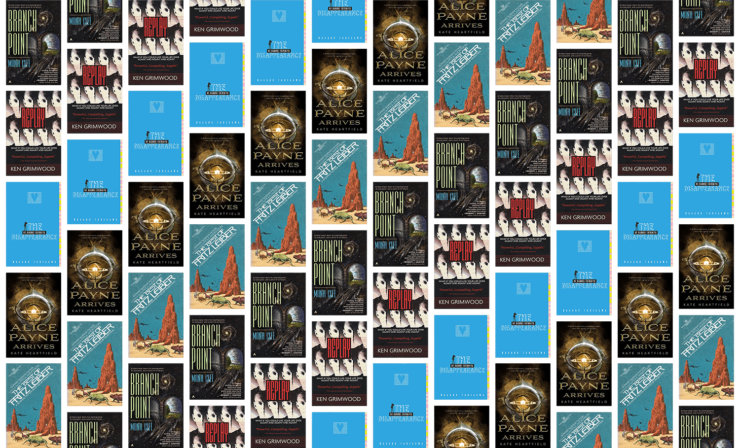Who among us has not dreamed over getting a do-over? Perhaps this time around, one could defer the two-hour discourse on the history of stirrups until the second date, leave the nearly-red hot frying pan to cool a little longer, or at the very least, take steps to ensure that some major historical debacle never happens, changing the course of human events for the good of all. Armed with knowledge of how things played out in the original timeline, surely one could shape a more perfect history!
That’s in reality. In fiction, of course, there’s no plot if everything goes as expected. Thus, these five works about altering timelines that did not, alas, work out entirely to plan.
“Try And Change the Past” by Fritz Leiber (1958)
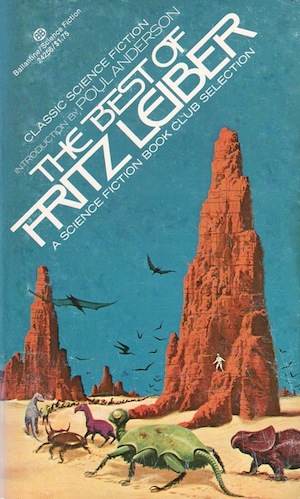
The Changewar was a long struggle between the Spiders and the Snakes to reshape universal history. Using time-change techniques to preventing his own impending murder made perfect sense to a nameless recruit in the wars. This is how he gained a deeper, personal appreciation of the Law of Conservation of Reality. History can be changed…but not easily.
Replay by Ken Grimwood (1986)
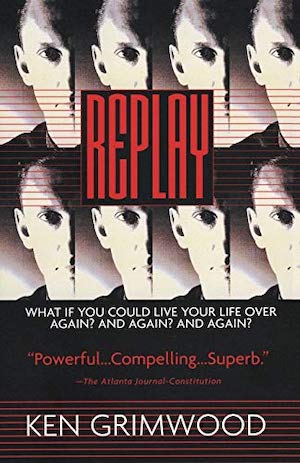
October 18, 1988: not only is Jeff Winston trapped in a dead-end radio job and ensnarled in a failed marriage he doesn’t know how to end, but he’s also having a fatal heart attack. Rather than unending oblivion, what awaits him is 1963. Young again, armed with the knowledge of how history played out the first time, it’s easy for Jeff to amass a fortune while side-stepping all the errors he made the first time he lived. There are only two catches:
- Avoiding old errors is easy; avoiding committing new ones is hard.
- Whatever he does, there is a fatal heart attack waiting for him on October 18, 1988.
No worries, however; each death brings new resurrection and more changes to get things right. Or terribly wrong.
Branch Point by Mona Clee (1996)
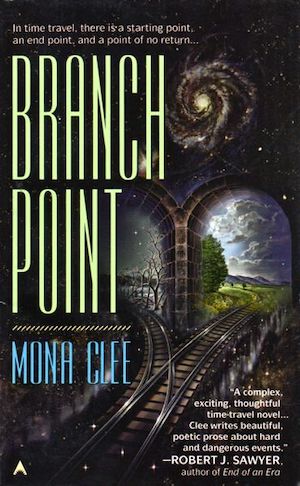
In 1962, the United States of America crushed the Soviet Union. All it took were the deaths of millions and the gradual extinction of all life on Earth, thanks to radioactive fallout, ozone depletion, and nuclear winter. A century later, a trio of time travelers are dispatched from a dying Earth to 1962 to prevent the Cuban crisis from spiraling into a thermonuclear exchange, thus saving humanity and most other species on the planet.
Preventing the nuclear war of 1962 proves easy enough. Preventing nuclear war entirely is another matter. Again and again, the US and USSR turn their growing arsenals on each other, dooming the biosphere in the process. Again and again the travelers intervene. However, American and Russian ingenuity for finding pretexts to start WWIII seems inexhaustible, which cannot be said for their time machine’s fuel supply.
The Disappearance of Haruhi Suzumiya by Nagaru Tanigawa (2004)
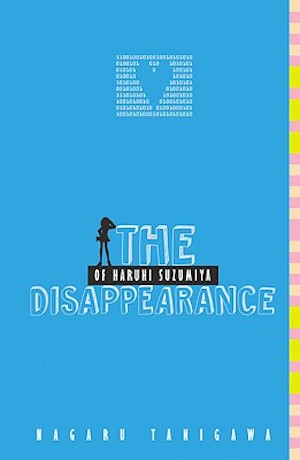
Alien emissary Yuki Nagato, time traveler Mikuru Asahina, ESPer Itsuki Koizumi, and perfectly unremarkable student Kyon: all work tirelessly to keep reality warper Haruhi Suzumiya from realizing she is effectively a god. The task requires endless labour monitoring an energetic egotist, labour that receives very little in the way of reward. Small wonder that one of the quartet eventually tires of the endless task. When the opportunity presents itself, Haruhi is erased from reality. Madcap adventures are replaced by humdrum tedium. Haruhi is forgotten by all of her former monitors, save one: Kyon remembers the history that once was.
A sensible person would welcome a respite from Haruhi’s chaos. Kyon cannot resist investigating the mystery: whodunnit? The puzzle turns out to be easy to solve. Kyon now has to decide whether to embrace the new, boring Haruhi-less world or restore history to the terrifying but entertaining version in which an oblivious god walked the Earth.
Alice Payne Arrives by Kate Heartfield (2018)
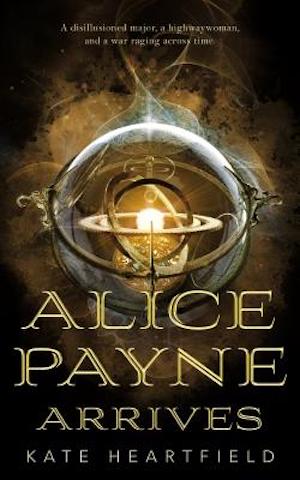
The Guides see time travel as the means by which to steer humanity toward utopia. The Farmers, skeptical that Guide efforts will produce the desired results, attempt to preserve history. The net result: history has been altered but mostly for the worse. Rather than forestalling wars, conflicts linger longer and are far bloodier.
Determined to bring a dramatic end to the Guide/Farmer time war, disillusioned Farmer agent Prudence convinces herself that the genius 18th-century inventor Jane Hodgson is an ideal patsy. However, Prudence’s bold scheme overlooks Jane’s patron, Alice Payne. Rejecting the options convention offers to mixed-race upper-class Georgian women, Alice operates as a dashing highwayman under the nom de crime of the Holy Ghost. The brilliant and adorable Jane, with whom Alice is quite smitten, is a central part of Alice’s life. If some futuristic time traveler thinks they can seduce Jane away from Alice without a struggle, they are making the same fatal error plenty of Georgian men have made: underestimating Alice Payne.
***
“If only…” features in many of our musings. It’s natural that it should feature in so many of our books. No doubt even now you yearn to suggest “James, if only you had mentioned …” Comments are below.
In the words of Wikipedia editor TexasAndroid, prolific book reviewer and perennial Darwin Award nominee James Davis Nicoll is of “questionable notability.” His work has appeared in Publishers Weekly and Romantic Times as well as on his own websites, James Nicoll Reviews and the Aurora finalist Young People Read Old SFF (where he is assisted by editor Karen Lofstrom and web person Adrienne L. Travis). He is a four-time finalist for the Best Fan Writer Hugo Award and is surprisingly flammable.










